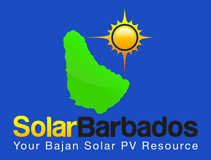| Energy | Power | |
| Definition | Energy is the amount of power consumed (or generated) over a period of time. | Power is the rate at which energy is consumed (or generated) at a particular point in time. |
| Common unit(s) | kWh (kilowatt-hours), MWh (megawatt-hours) | W (watts), kW (kilowatts), MW (megawatts) and GW (gigawatts) |
| Example | An electricity bill for a house that consumed 501 kWh of energy for a month. | An old incandescent light bulb uses 60W of power. |

Image credit: Think-energy.net
Car analogy
Imagine that power (W) is like your speedometer (current speed), while energy (kWh) is like your odometer (distance). The speedometer can quickly go from zero to sixty and back to zero, but the odometer only slowly counts up: faster if your speed is faster. The speedometer tells you how fast you are going at that moment (how much power you are using right now), while the odometer tells you how far you’ve gone (how much energy you’ve used in total).
Two cars could travel the same 100 km road, one at 10 km/hr for 10 hours and the other at 100km/hr for 1 hour. Although the power of the engines is different, the distance travelled is the same; time is the crucial part in the equation as we will see in the following real world example.
Power can change very rapidly in the case of turning a device off and on e.g. lights. As a result it is more difficult to monitor and track on an individual level by the utility company. It is more convenient to measure consumption based on energy usage as this does not change quickly but rather gradually accumulates to enable monthly billing.
40W incandescent light bulb example
To understand energy use and our electricity bills we must factor in the amount of power devices and appliances use and how long we use them. This is a direct result of the following equation:
Energy = Power x Time
Let’s look at the example of a typical light fixture with a 40W light bulb. 40W is the amount of power the bulb consumes, or the rate at which the bulb uses energy. If you run a 40W light bulb from dusk until dawn for 12 hours, you will consume 480Wh of energy (or 0.48kWh).
In Barbados, the effective price for electricity is $0.65/kWh, so that light bulb would cost 31.2 cents per night, or $9.36 monthly. Think about that, almost $10 a month for a single outdoor incandescent light!
If you look at your utility bill, you will see that you are charged for the number of kilowatt-hours (kWh) that you consume. This is the amount of energy consumed between meter readings. To reduce the energy you use, you must either reduce the amount of power you use, or the amount of time you use that power, or both.
Going back to our light bulb example, you could install a light bulb that uses less power, or you could reduce the number of hours it runs. Both would reduce the energy used and save you money. Here are three different ideas to save energy and money.
1) Replace the bulb with a 6W LED with equivalent light output (reduce power).
New monthly energy consumed: 2.16kWh
New monthly cost: $1.40
Monthly savings: 12.24kWh, or $7.96
2) Put the light on a timer and run for just 6 hours nightly (reduce time).
New monthly energy consumed: 7.2kWh
New monthly cost: $4.68
Monthly savings: 7.2kWh, or $4.68
3) Do both of the above (reduce power and time).
New monthly energy consumed: 1.08kWh
New monthly cost: $0.70
Monthly savings: 13.32kWh, or $8.66
How does this pertain to solar PV?
To borrow from the car analogy again, if you are driving to work in the morning your speed is determined by the road conditions and traffic. The car may be capable of 80km/hr under ideal conditions, such as a clear road on a Bank holiday, but not likely during a Barbadian rush hour. Similarly, a solar PV system with a power rating of 5kW will only operate at 5kW under certain conditions. In the morning and evening, due to lower amounts of sunshine, the system will exhibit a lower power. Over the daylight hours that the system produces energy, however, a 1kW (power) solar PV system in Barbados produces roughly 125kWh (energy) a month.
